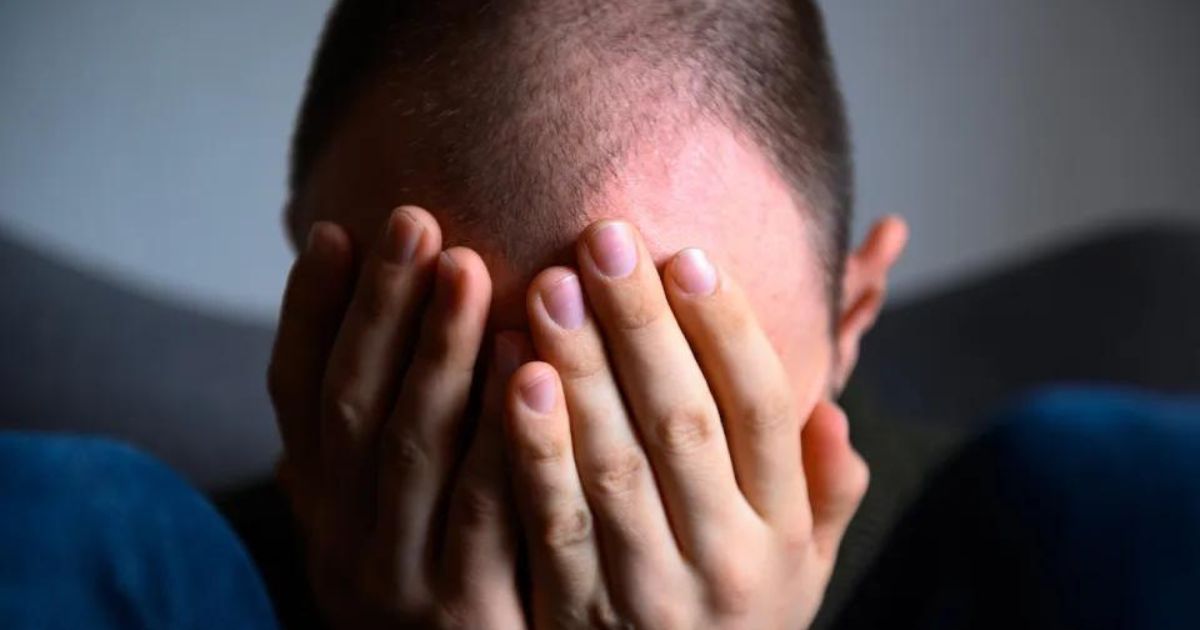In today’s ever-connected world, the incessant flow of notifications on our smartphones beckons us to stay updated, but it might inadvertently lure us into a digital abyss of despair.
The phenomenon known as “doomscrolling” is causing increasing concern as individuals find themselves unable to resist the compulsion to continuously scroll through distressing news, even when it takes a toll on their mental health.
In this report, we explore the impact of doomscrolling on well-being and the psychological toll it exacts on those caught in its grip.
In the digital age, the transition from one global catastrophe to another can be dizzying. Just as the COVID-19 pandemic appeared to be waning, people found themselves thrust into the heart of the war in Ukraine and, subsequently, the escalating conflict in Gaza.
Every swipe of the news feed reveals a world marred by suffering, with images of burned children and lifeless civilians haunting our screens. This disheartening and disorienting experience has become familiar to many who engage in the practice of doomscrolling.
Social media feeds are filled with similar narratives of despair and pain, and individuals of all ages, particularly those in their 20s and 30s, are sharing the distressing news that pervades their online lives.
The feelings of anxiety, sadness, and even sleep difficulties stemming from this content are not isolated; many are experiencing the same emotional turmoil.
The Rise of Doomscrolling and Its Impact on Mental Health
This modern malaise, often referred to as “doomscrolling,” involves compulsively scrolling through negative news, even when it evokes sadness, disheartenment, or outright depression. The phenomenon’s prevalence surged dramatically with the onset of the COVID-19 pandemic.
A study published in the Health Communication journal in 2022 shed light on the extent of the issue, revealing that 16.5 percent of participants exhibited a “severely problematic” habit of consuming negative news.
Researchers linked this relentless exposure to bad news with “greater mental and physical ill-being,” including heightened levels of stress, anxiety, and depression.
The Profound Impact of Negative News Exposure
Claire Leong, a counselor at Sofia Wellness Clinic, delves into the profound effects of constant exposure to negative news and social media content on an individual’s mental well-being. She highlights the inherent empathy of human beings, emphasizing that people are naturally sensitive to the pain and suffering of others.
As she explains, “Humans are generally social creatures meant to live within societies and communities. Most of us are empathetic beings, which means we can feel for other people. For example, if we watch someone accidentally kick a table while walking, we cringe and can almost feel the pain in our bodies.”
It’s natural for individuals to experience unpleasant emotions when consuming negative news and social media content, particularly concerning war and suffering. Leong underscores that it would be concerning if someone derived happiness from watching videos of people in pain and suffering.
However, constant exposure to such distressing content can lead to desensitization, a phenomenon where an individual becomes less emotionally responsive to a particular stimulus due to repeated exposure.
Leong points out that this desensitization could lead to reduced empathy for those around us, as people are constantly witnessing distressing events on social media.
Moreover, this persistent exposure can distort one’s sense of normalcy. Leong explains, “We may end up believing that it is normal to respond with violence if we are constantly consuming content about people responding violently.”
Depending on the algorithms that curate an individual’s social media feed, they may also be exposed to extreme views that deviate from societal norms, such as extremely racist or sexist perspectives.
Leong warns that internalizing such views could lead to social issues, including difficulties in maintaining friendships and interactions with those who hold extreme perspectives.
The prevalence of doomscrolling underscores the need for greater awareness of its detrimental effects on mental health. In an era where social media and news consumption are integral to daily life, individuals must recognize the importance of self-regulation to protect their well-being.
Recognizing the signs of doomscrolling and implementing self-imposed limits on negative news consumption can help individuals maintain their mental health.
Furthermore, promoting open conversations about the impact of constant exposure to distressing content with mental health professionals and support networks can contribute to a more balanced and healthier relationship with technology and news.
In conclusion, doomscrolling is a pressing concern in the digital age, as individuals grapple with constant exposure to distressing news and its impact on their mental health.
While technology and news consumption are integral to modern life, it is essential to prioritize mental well-being and maintain a healthy balance between staying informed and protecting one’s mental health.


























